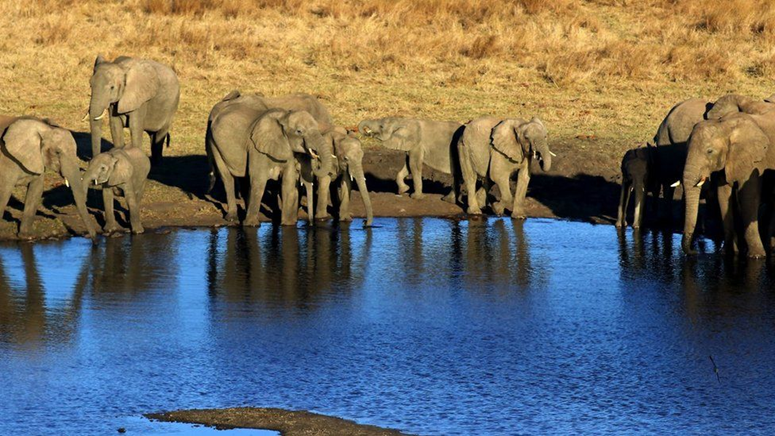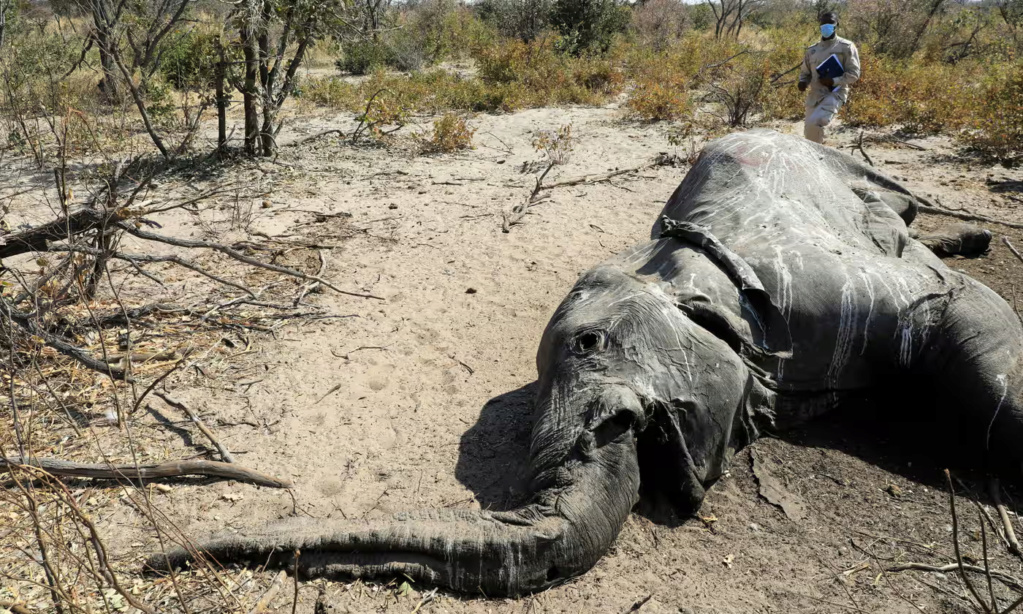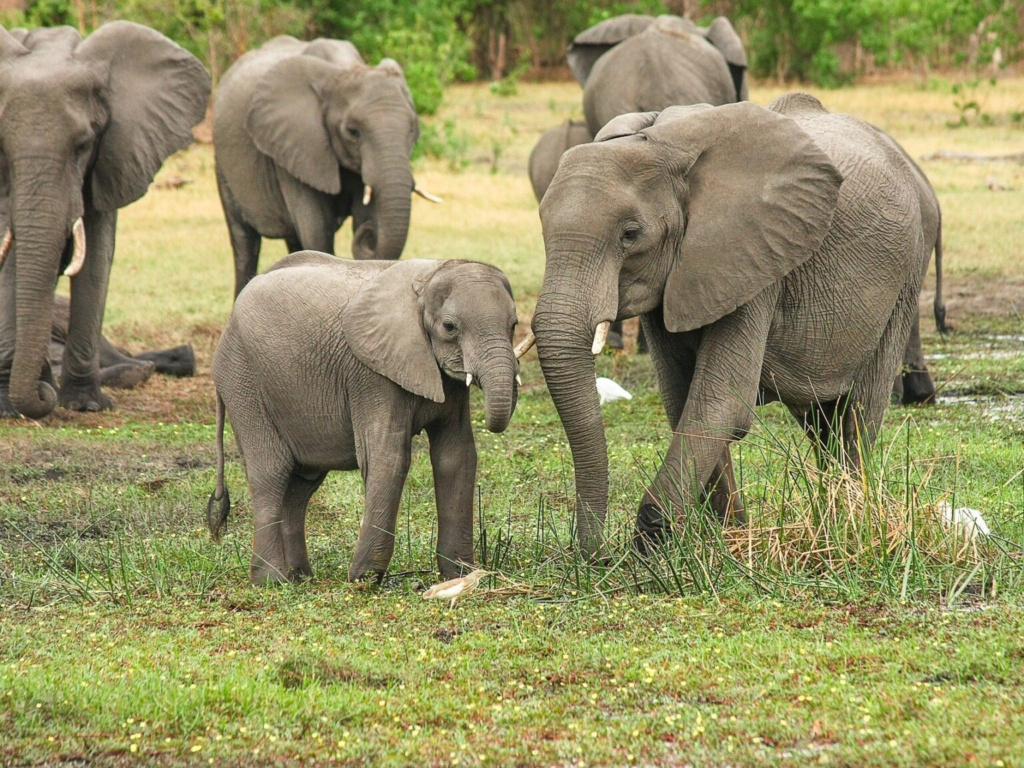We finally know why 400 elephants died in 2020 and this does not reassure scientists

In 2020, it’s not just bats that have scared the world. Another animal incident has disconcerted in Botswana and Zimbabwe: elephants have started dropping dead.
In the space of just a few months, between March and June 2020, residents and environmentalists witnessed an unusual phenomenon: elephants suddenly began walking in circles, weakened and disoriented, only to collapse dead .

Around 350 elephants of the endangered species Loxodonta africana, regardless of sex and age, have died in the Okavango Delta, Botswana. Thirty-five other specimens were also recorded as having suffered the same fate in Zimbabwe. Other species of elephants were not affected.
An investigation: the possible culprits behind the deaths of hundreds of elephants
An investigation has been opened. The Botswana government, scientists and NGOs such as Elephants Without Borders and the International Fund for Animal Welfare (IFAW) examined the deceased pachyderms. No trace of violence, the carcasses and their tusks remaining intact, or chemicals that could have poisoned them, were found, thus erasing the possibility that it was the work of poachers.
Studying the deceased bodies was not an easy task due to the working conditions in rural areas and the size of this majestic mammal. “Identifying and then reaching carcasses in time to obtain useful samples is a problem we often face. However, we also didn’t know what disease we were dealing with,” explained Chris Foggin, wildlife veterinarian at Victoria Falls Wildlife Trust and lead investigator. After analyzing a reduced sample, researchers found that 13 elephants had died from septicemia: a form of poisoning in their blood.

?The culprit: bacteria… and stress
After three years of investigation, scientists have finally identified the precise cause. It is a bacterium close to Pasteurella multocida, "not completely mysterious", but which "had not been associated with septicemia and had never been found in African elephants" stated Falko Steinbach from the British Animal and Plant Health Agency, which participated in the investigation, to the English radio station BBC Radio 4.
The name of the microscopic culprit that can kill these giant mammals: “Bisgaard taxon 45”. Previously, this bacteria had been found in tigers, lions, chipmunks, psittacines and had also been singled out in a similar case of mass deaths of 200,000 antelopes in Kazakhstan. However, this bacteria has not usually been observed in elephants.

How then can we explain that Bisgaard taxon 45 could have killed them? The scientists, whose study was published in the journal Nature Communications, believe that stress could have lowered their defenses, thus making them more vulnerable to generalized infection. Indeed, elephants in the African savannah are believed to be under intense stress due to persistent drought and difficulty finding food.
Unfortunately, the discovery of this culprit is not reassuring for scientists or environmentalists. Today, there are only 350,000 elephants in the African savannah and their numbers are decreasing by 8% each year. Indeed, this infection “adds to the growing list of disease-related threats to elephant conservation,” Arnoud van Vliet of the University of Surrey told The Guardian newspaper.
The authors of the study therefore wish to continue their research to determine the possible link between stress, the ecological situation and the availability of food. “I hope that with further studies we will be able to identify not only what leads to these epidemics, but also perhaps propose intervention strategies, perhaps even a vaccine,” concludes the searcher.
Source: websites

